How to get rid of rats - 14 ways to banish these unwanted pests
Facing a pest problem? Here's how to combat rats in your home fast, and the warning signs to look for
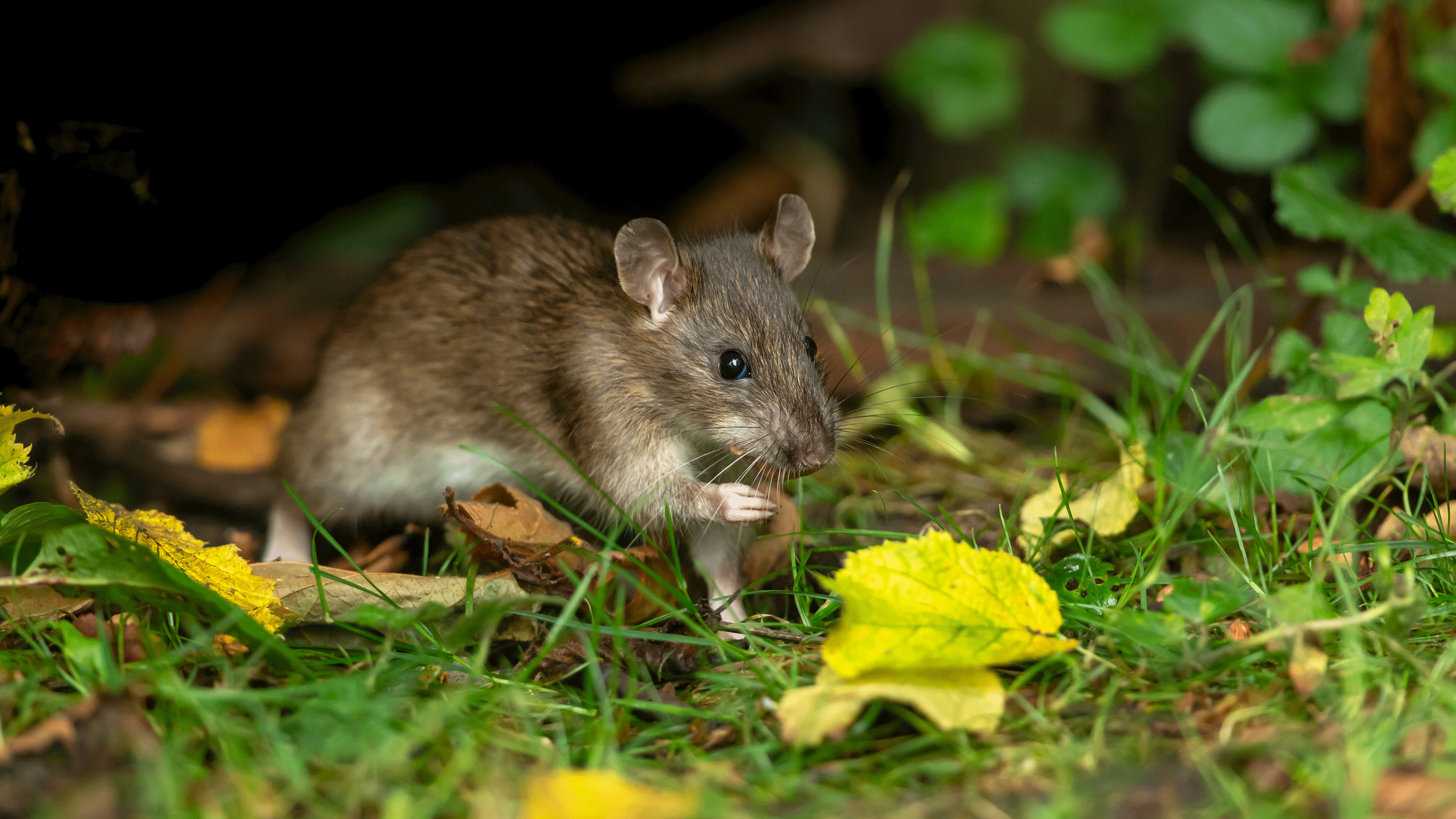
Sign up to our newsletter for style inspiration, real homes, project and garden advice and shopping know-how
You are now subscribed
Your newsletter sign-up was successful
EDITOR’S NOTE: An earlier version of this article included a quote from a purported expert whose credentials we have not been able to verify. The quote has been removed. We regret this lapse in our verification process and have updated our internal protocols to reduce the risk of recurrence.
The thought of rats in your home is enough to make anyone shudder, even more so if you actually lay your eyes on the pests. So if you're dealing with these unwanted guests, or have even seen signs of their existence, you'll want to know how to get rid of rats fast.
As well as being icky and shiver-inducing, rats pose a serious health hazard, so you won't want them occupying your nice clean home. They tend to enter into areas like your kitchen too, which is essential to keep sanitary when you're using it to regularly prepare and store food. Just like learning how to get rid of moths or how to get rid of ants, these pests can feel difficult to shake, but with a few simple steps you can secure your property and keep rats at bay.
It can be horrible to deal with, but there are a number of steps you can take to getting rid of rats that don't involve getting anywhere near them. This way, you can properly relax in your home without the worry of scuttling feet.
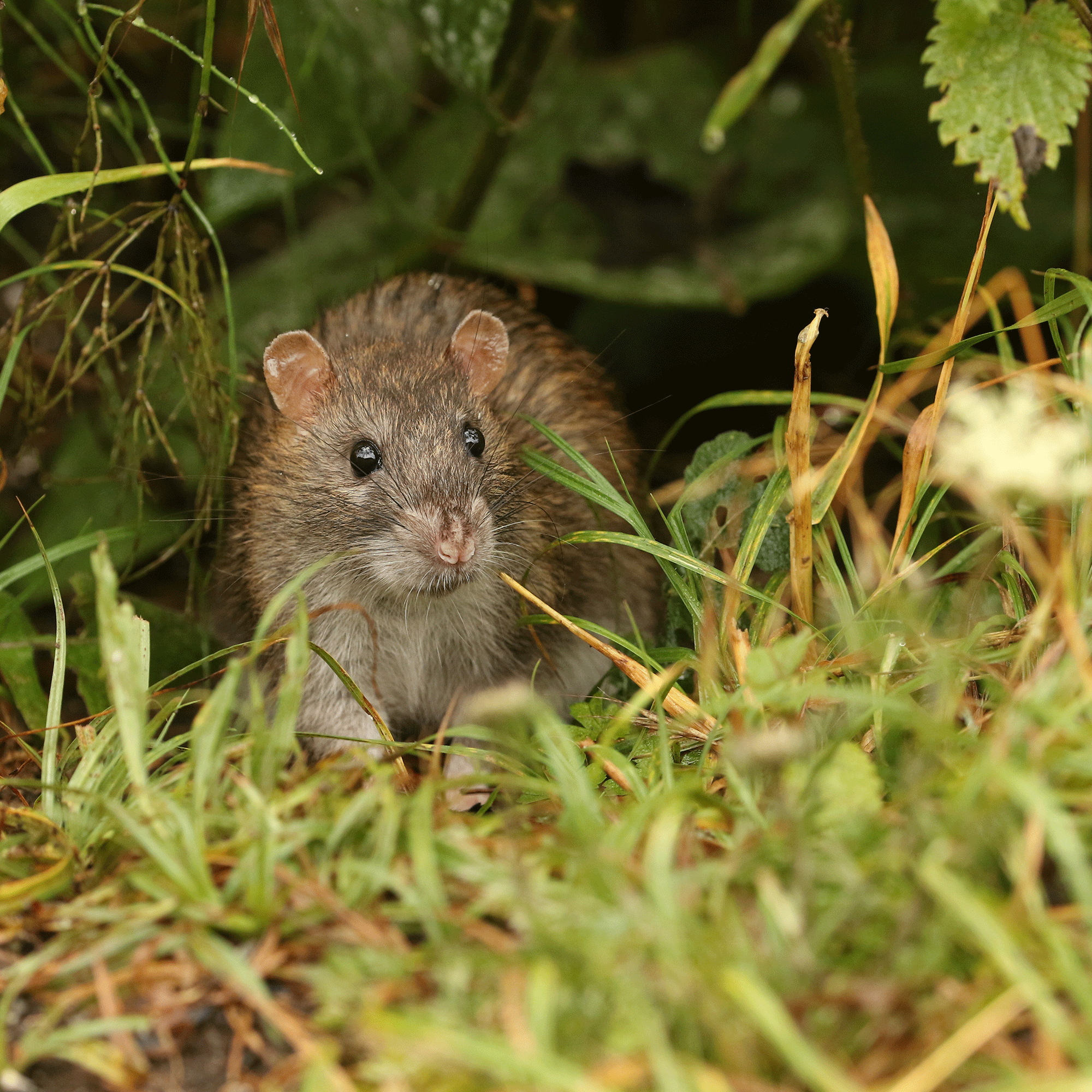
How to get rid of rats
So that you can go back to enjoying a rat-free home, we've spoke to the experts and asked them to share their best advice. Here's how to get rid of rats safely and effectively.
1. Check for entry points
If there are signs of rats in your home and you didn't let them in, chances are they snuck through somewhere. Checking around your property for these signs will help you to establish how they've found a way in, and if there is anything that's attracting them. This way, you can decide how to combat the issue.
'Be sure to look out for any building defects, holes in pipework, gaps at the front and rear steps, damaged airbricks, large weep holes, and gaps under window ledges,', says John Stewart from Pest-Stop.
'Inside your home, check that gaps under the doors including the garage are no greater than 1.3cm. Also clear out stair cupboards where rodents could make a winter nest.'
Sign up to our newsletter for style inspiration, real homes, project and garden advice and shopping know-how
But rats don't just enter your living space, they night also be making a home amongst your garden furniture and tools.
'Finally, if you have any outdoor buildings such as sheds and greenhouses, make sure there is no exterior damage,' John advises. 'Rats like to hide underneath sheds and decking, so to prevent any building nests or harbourages fill in any gaps you can see so they can’t set up home.'
2. Keep bird feeding to a minimum

The issue is with the rats, so why should the birds suffer? Don't worry, all we're suggesting it keeping bird feeding to a minimum while you have a pest problem, as the food could be attracting them.
'Limiting bird feeding can be imperative to prevent rodent attraction in your home. As an alternative, place bird feeders out during the day but don’t forget to remove them before the evening,' recommends John Stewart, from the technical team at Pest-Stop.
'Use specialist bird feeders too, rather than scattering food in your garden as this could attract rats!'
3. Seal any entry points
The easiest way to get rid of rats, to find out where they're coming from. Their entry points are likely to be small and hard to spot, but could be signposted by dropping or chewed homewares. Once you've spotted them, seal them up as fast as possible.
'The best way to seal entry points for rats is with steel wool,' advises Robert.
'Fill the gaps with steel wool and then put caulk around the steel wool to ensure it stays in place. Alternatively, you can use spray foam to keep it in place.'
Chimneys are also an easy spot for rats to enter through, so consider fitting chimney gates if you think this is their way in.
4. Do a deep clean - regularly
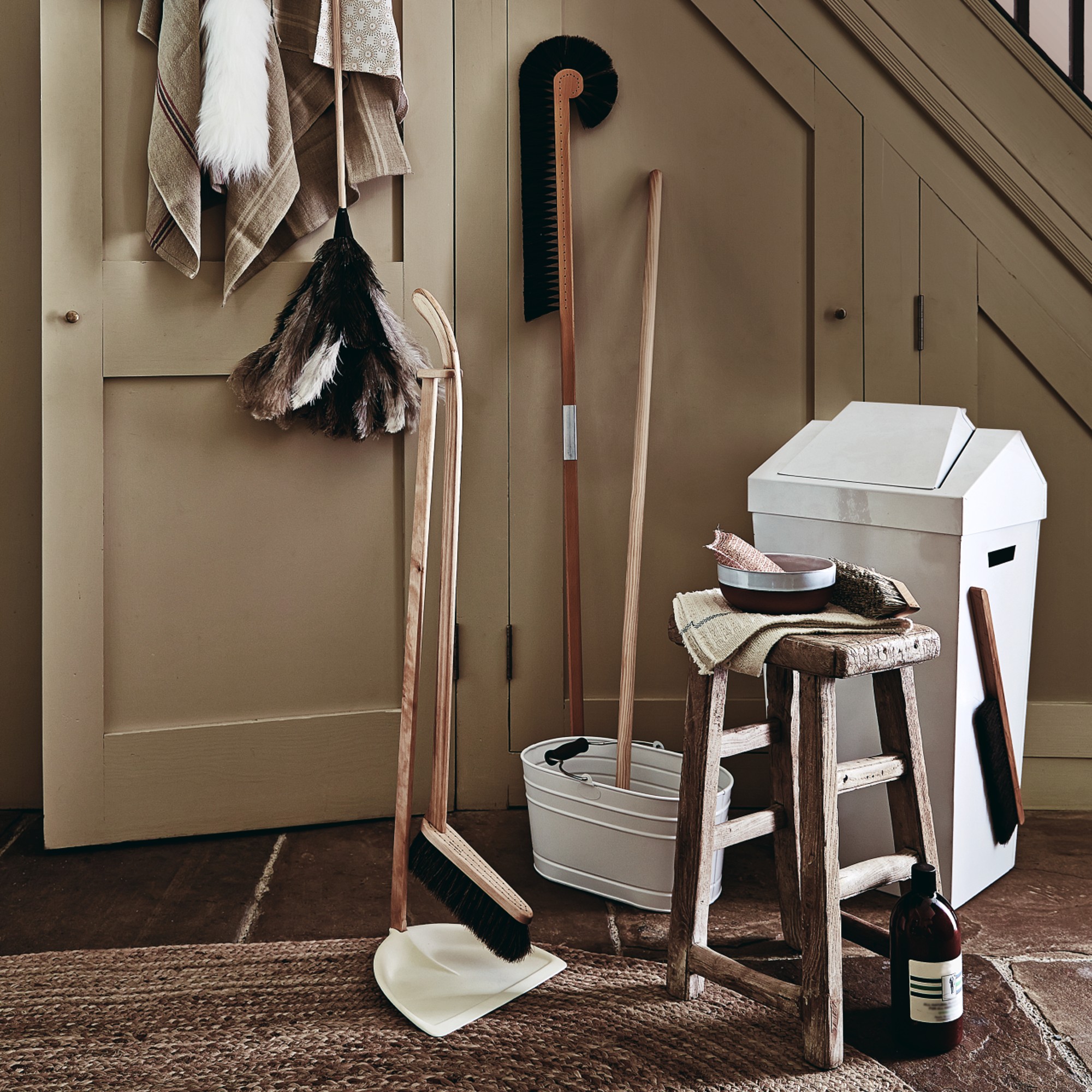
'One of the more time consuming but obvious ways you can keep rats at bay is by doing a deep clean to eliminate any possible hiding spots and any stray bits of food', says Daniel Schofield, Director, The Expert Gate Company. 'Basically, anything rats could enjoy - get rid!'
If you want to keep these furry creatures out of your home - permanently - the best way to do this is to keep the kitchen clean and free of food waste at all times. Learn how to clean kitchen cabinets thoroughly so that rats aren't attracted to loose crumbs and dried oats hanging at the back of your cupboard.
5. Organise your food storage
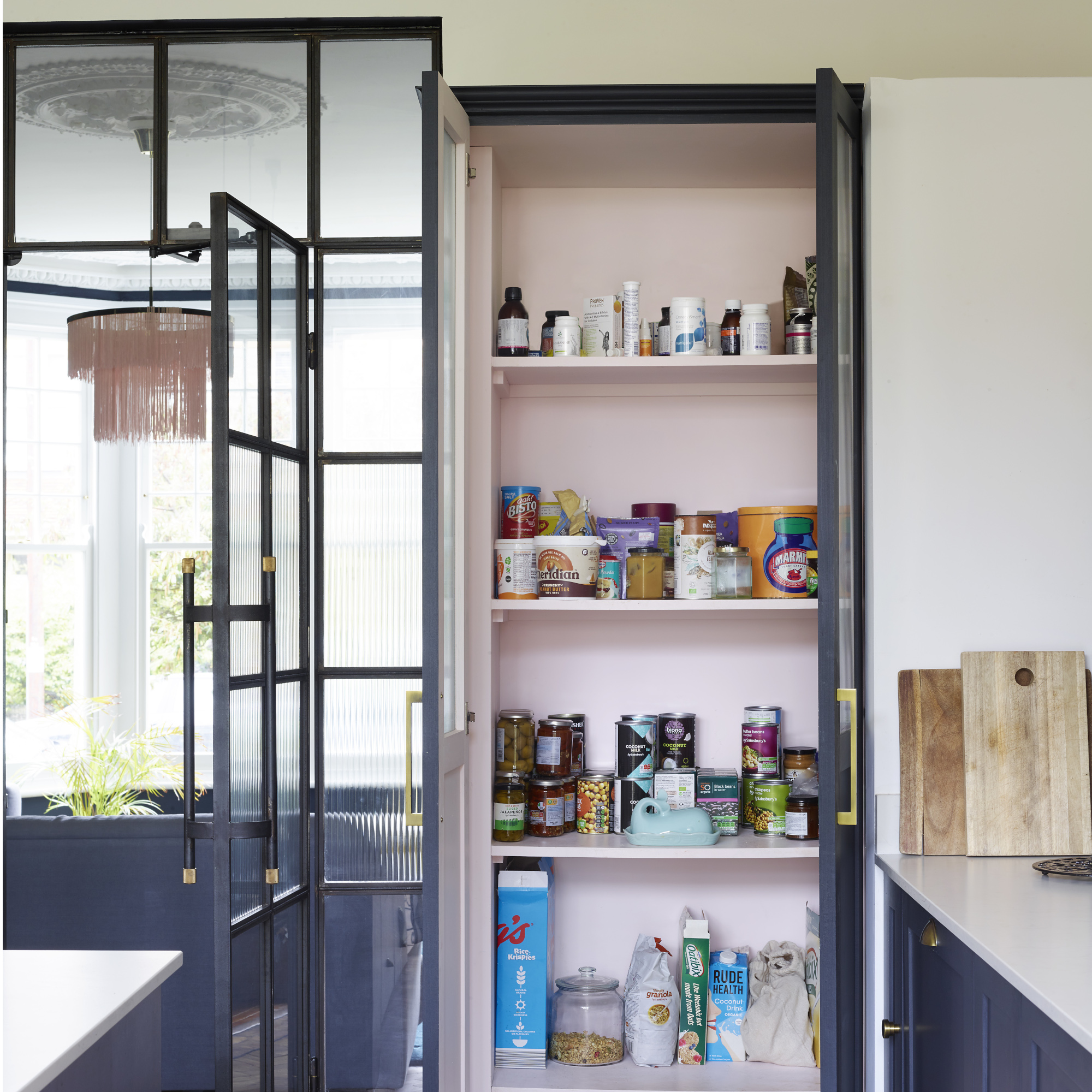
As a follow on from the last point, it pays to have a good system of organisation when it comes to your food cupboards. Taking the time to organise your kitchen cabinets will stop food from flying about, which is the main attraction for rats to come and visit. Seal up any bags of food that have been opened, or transfer them to tupperware where you can protect the food with a lid.
6. Change the bins

What could be more tempting than a bin full of 'delicous' waste for a rat to feast on. Given their contortionist skills even the slightest gap in a bin can feel like an open invitation. Weight the lid down, if you already have a good sturdy bin - preferably a steel design, because they can and will gnaw through plastic.
Even better still choose a bin with a secure lid, which they can't knock off - this is the number one hack for learning how to get rid of flies too.
7. Empty water bowls
The average adult male rat is said to drink up to 60ml of water a day, so they're always on the look out for the next watering hole. Pet bowls are a welcome invitation to sip from. Whether indoors or outside, experts suggest emptying them each night and turn them over to stop the sniff of attraction.
Another outdoor water source to watch are paddling pools, which should be emptied or covered to avoid rats getting in.
8. Clean up tempting food waste in the garden
After a barbecue or family party, make sure your garden is free of food. If you have a get-together on your decking, thoroughly clean the decking so that no sauces or dropped food remain which could entice rodents and other critters. Remember rats, mice and hedgehogs will also eat birdfeed, so make sure if you have one you opt for a birdfeeder that isn’t placed on the floor or a table and put it away from your decking.
9. Use humane traps to deal with the issue
Many of us don’t like the idea of trapping pests, but sometimes, a humane, non-lethal trap method can solve the situation. Place these around your decking and make sure to release the rodent at least one mile from your home once caught.
If you prefer, buy an ultrasonic pest repellent which you can pick up from Amazon. Compact and discreet, these devices are ideal for placing by your decking and emit high-frequency sound waves that rodents can’t stand — and we can’t hear.
10. Keep garden buildings clean and secure
Garden buildings such as sheds and summerhouses are another favourite hang out spot for rats, so it's important to keep on top of cleaning these throughout the year. Storage ideas for sheds will help you maintain a clear system of organisation, which will make cleaning easier.
'Don’t store bags of garden waste or old tat from inside the house there, as it only attracts them', says Lauren Coley, Head of Product, Tiger. 'Instead, purchase a bin store where this rubbish can stay for a while, as not only will this stop rodents getting to it, but also protects it from extreme weather conditions like wind. If pet food or birdseed is kept in a garden building, make sure it is tightly sealed so that it can’t be chewed.'
11. Block off your decked area
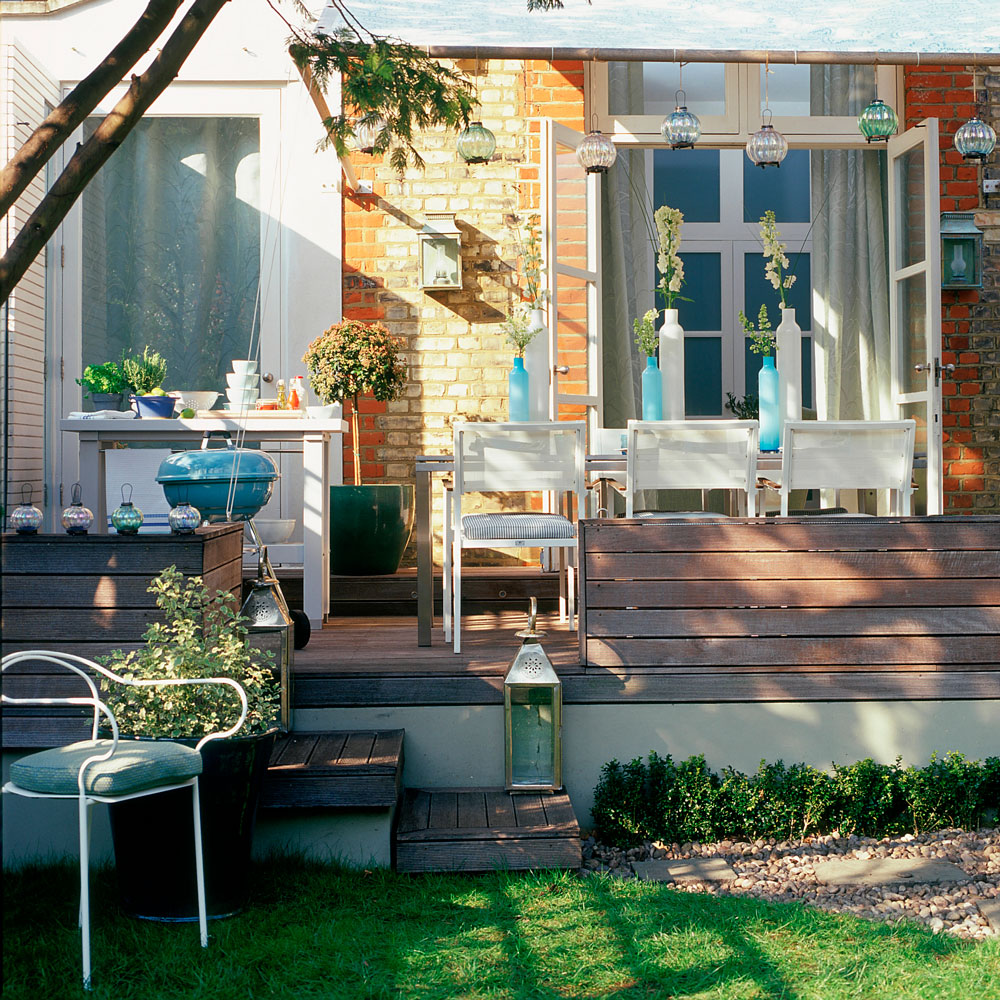
As we mentioned, shelter is something unwanted animals will always look for, so ensure that your garden is not offering a place for pests. Rats won’t be able to make a home under your decked areas if they can’t get in to begin with, so make a barrier.
But, how do you block off your entire decking without employing help or spending loads on materials? Use wood, mesh or chicken wire and run it along the entire edge of your decking between the boards and the ground. If you’re worried that this will ruin your decking’s aesthetic appeal, you can install a wooden trellis and have the mesh running behind it. Then, arrange potted plants or flowerbeds around your decking to mask the mesh further.
Home remedies for how to get rid of rats
1. Try eucalyptus
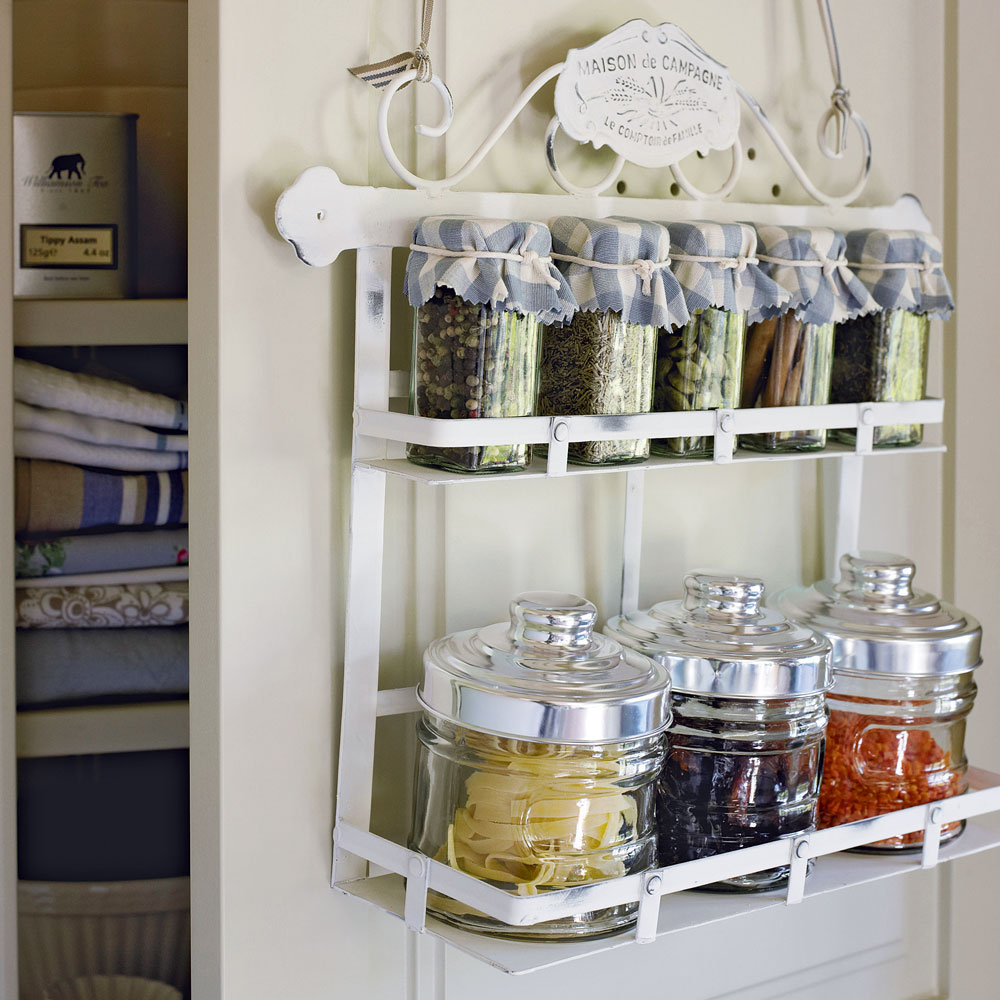
Rats have a super highly sensitive sense of smell, so there are friendly ways to put them off entering your home or garden by using natural scents.
'We recently discovered rats had set up home in our shed. We blocked up the gap they'd been using to get in, bleached the area, and then doused the whole space very liberally with eucalyptus oil, which we'd read is a great way to deter rats because they don't like the smell,' says our Editor-in-Chief, Heather Young. 'It's been a couple of months now, and there's been no new activity, so it seems to have worked!'
For a more permanent solution, plant a peppermint tree around the edges of your decking. Other scents hated by rats include garlic and onion. And there are plenty of rat and mice repellents you can buy that will work to keep pests away.
2. Utilise onions
If you're looking for a cheap solution to getting rid of rats, using whatever is already on hand in your pantry, then this could be the answer. They don't like them, so cut into slices and leave close to entry points. They'll stop being effective when they're no longer pungent, however.
3. Try ammonia
Just like us, rats aren't a fan of anything with an especially strong smell. Another example of this is ammonia, which is extremely pungent. Mix with water and leave in a bowl, but be wary of any plants it could spill on or animals or children which may get close.
How do I know if rats are in my garden or home?
Of course, learning how to get rid of rats can be a lifesaver, but you may not be 100% sure that these pests are visiting your home in the first place. Is it rats or mice you might be wondering?
Here are the tell-tale signs that unfortunately mean there are rats in your garden or kitchen.
1. Tennis ball sized holes
These will appear near drainage, mainly near your sink to capitalise on the holes already in place for allowing piping.
2. Burrow holes
Outside the property – mostly along side walls of the house, or fences to indicate they are present. These burrow holes are similar to what rabbit holes look like.
3. Droppings
The sight of a dropping indoors is pretty big indication that you have a rodent problem. You'll most likely find these under kitchen units if they are present. Rats droppings are larger than mice droppings.
4. Scratch marks
An easy way to spot the unwelcome intruders is by the marks they leave behind. Scratch and gnawing marks in side the household are likely to be left on possible entry to the property. Look out for these around cupboard edges especially.
5. Scurrying sounds from walls and ceilings
Hearing scurrying in the ceilings and walls. Hearing this noise would indicate you have rats running between the ceiling and the floorboards above, or between the insulation layers of the walls.
What's the fastest way to get rid of rats?
The quickest way to get rid of rats would be to immediately look for the how, and why, they're getting in. Establishing the root of a pest problem will allow you to figure out a way of managing it, but also make sure that they are banned for good.
When scanning for signs of life, John recommends to look for 'rodent activity such as droppings and nesting materials around your home.'
But where should you even look?
'The attic space is a particularly attractive place for rats as it provides a warm haven for them. Electrical cupboards are another place to bear in mind, as rats like to chew through electrical wiring,' advises John.
'You should also check under the kick plates in the kitchen for rat droppings and clear out any food debris.'
Once you have established their route, you can act quickly using one of the methods above to banish them from your home.
What scent will keep rats away?
Rats have a keen sense of smell, so use this to your advantage when learning how to get rid of rats. Placing scented objects around your home, especially at potential entry points, should help get rid of them permanently.
'One example of a scent you can use is peppermint oil, or any scents with spicy qualities', says Daniel from The Expert Gate Company. 'If you want to keep rats out of the garden, items like onion and garlic are two of your best friends, as their overpowering smell keeps those rats far away.'
'Just the scent of an onion is one of the best non-toxic ways to get rid of rats from your garden', agrees Robert, pest control expert. 'The pungent smell of onions can deter rats and prevent them from wanting to enter the garden.'
We recommend purchasing onion and garlic scented items, rather than using the vegetables themselves - food is food after all, and you don't want to start attracting other pests as well.
Tamara was Ideal Home's Digital Editor before joining the Woman & Home team in 2022. She has spent the last 15 years working with the style teams at Country Homes & Interiors and Ideal Home, both now at Future PLC. It’s with these award wining interiors teams that she's honed her skills and passion for shopping, styling and writing. Tamara is always ahead of the curve when it comes to interiors trends – and is great at seeking out designer dupes on the high street.
- Holly CockburnContent Editor
- Katie SimsContributor